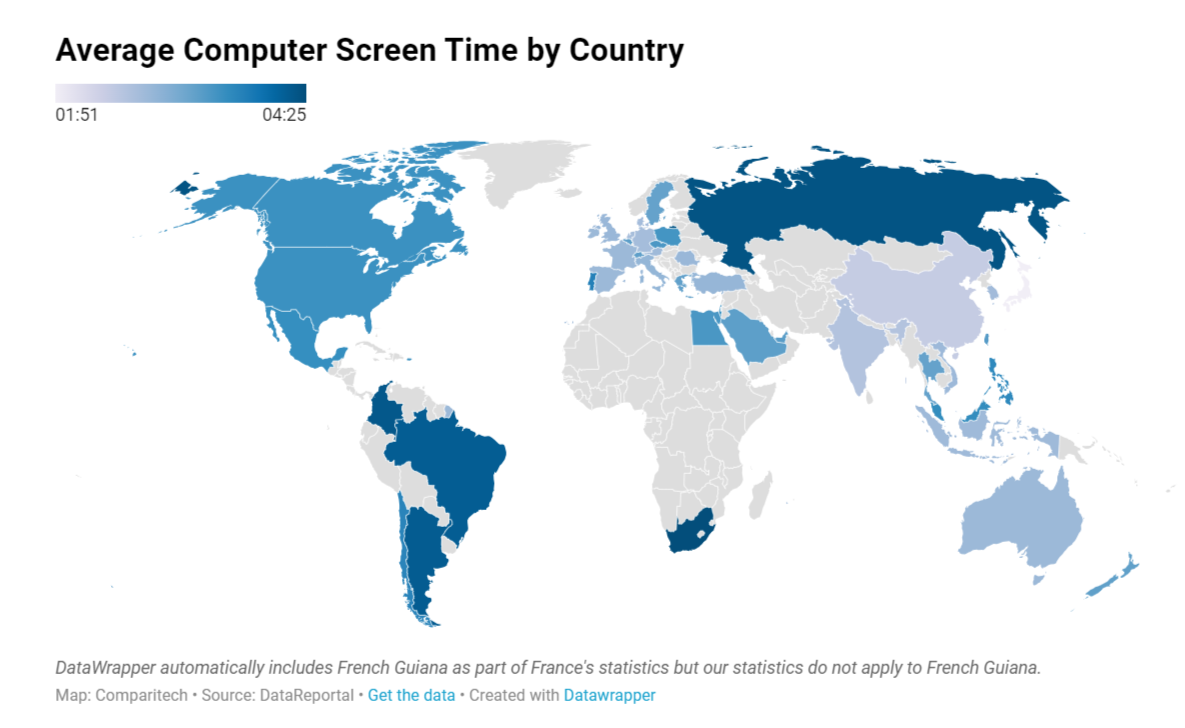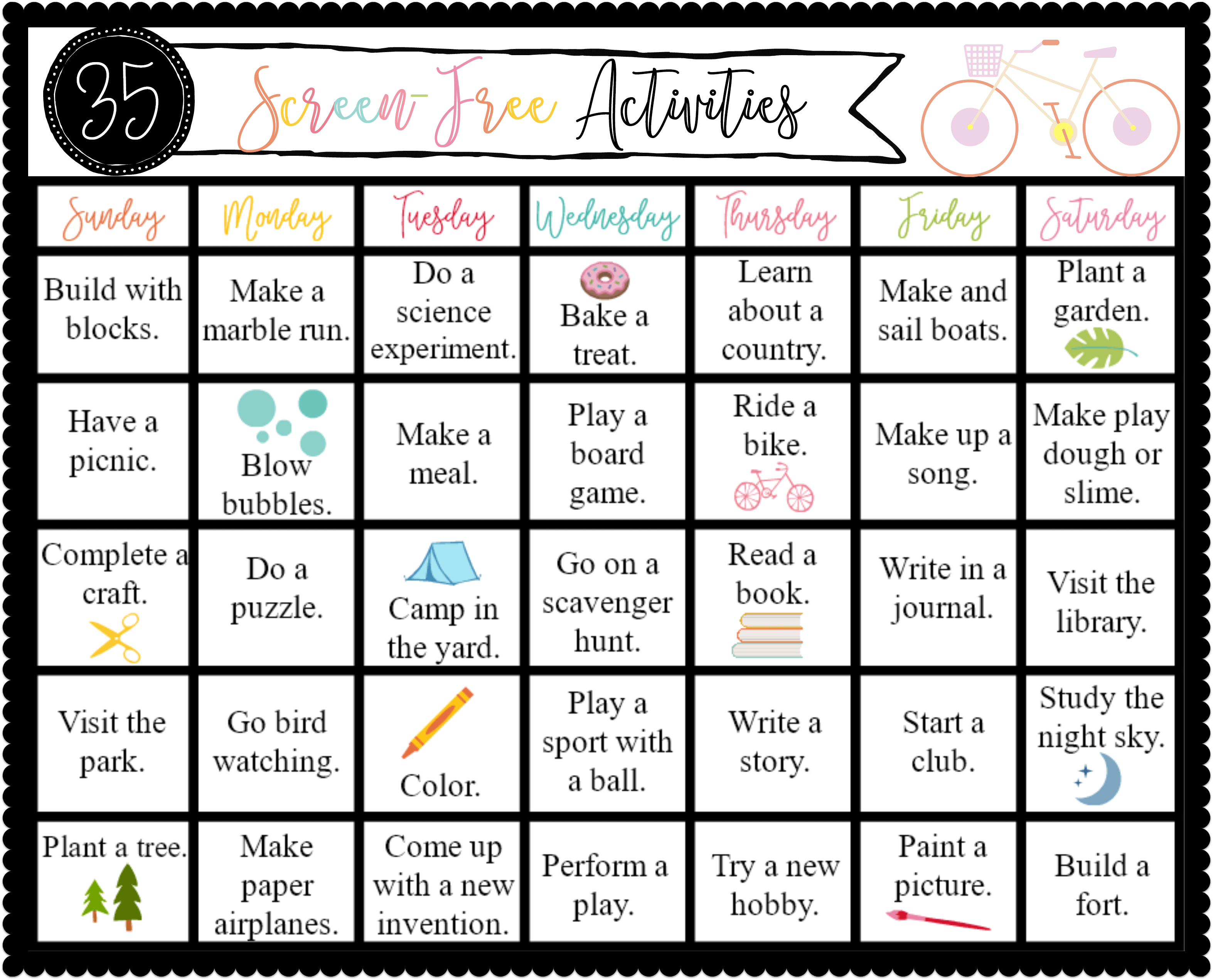In today’s digital age, screens have become an integral part of our daily lives. Whether it’s for work, entertainment, or staying connected with others, we often find ourselves spending a significant amount of time in front of screens.
When it comes to screen time for children and adults alike, the question arises: Does TV count as screen time?
Screen time has become a hot topic of discussion, especially concerning its impact on children’s health and development. With TV being a prominent source of entertainment and information, it’s essential to understand its role in the overall screen time equation.
In this article, we will explore different perspectives and provide insights into this topic.
1. Understanding Screen Time
Screen time refers to the amount of time spent engaging with screens, including televisions, computers, smartphones, tablets, and gaming devices.
It encompasses various activities such as watching videos, browsing the internet, playing games, and using social media platforms.
A. Screen Time Statistics
According to global screen time statistics, people worldwide spend an average of 6 hours and 37 minutes per day on screens for internet-connected activities.
However, it’s important to note that screen time varies across countries and demographics.

B. The American Academy of Pediatrics’ Recommendations
The American Academy of Pediatrics (AAP) provides guidelines regarding screen time for children. These guidelines suggest:
- Limiting screen use for children under 18 months
- Watching educational programming with a caregiver for ages 18-24 months, and setting limits for non-educational screen time for children aged 2-5
- For older children, it is recommended to encourage healthy habits and limit screen activities
2. TV and Screen Time
When considering whether TV counts as screen time, the answer is yes, it does.
Television falls under the category of screen-based activities and contributes to overall screen time. Therefore, the time spent watching TV should be taken into account when monitoring and managing screen time, especially for children.
A. Educational Content on TV
TV can provide educational content that can be informative and beneficial for viewers. There are numerous educational programs designed specifically for children, offering opportunities for learning, language development, and cognitive growth.
When children engage with high-quality educational content on TV, it can enhance their knowledge and understanding of various subjects.
3. Social Media, Gaming, and Other Screen Time Activities
While TV is just one aspect of screen time, it’s important to recognize that other screen-based activities, such as social media, gaming, and internet browsing, also contribute to overall screen time. These activities often involve interactive engagement, communication, and entertainment.

4. Balancing Screen Time with Other Activities
Maintaining a healthy balance between screen time and other activities is crucial for individuals of all ages. Encouraging physical activities, outdoor play, face-to-face interactions, reading, and hobbies can help create a well-rounded lifestyle and reduce excessive reliance on screens.

5. Making TV Time Count
Although TV is considered screen time, it doesn’t necessarily have to be solely passive consumption. To make TV time count, parents and caregivers can actively engage with their children during viewing sessions. Asking questions, discussing the content, and relating it to real-life experiences can enhance the educational value of watching TV.
A. Benefits of Watching TV Together
Watching TV together with children can be a bonding experience and an opportunity for meaningful discussions.
By actively participating in the content, parents can guide children’s understanding, critical thinking skills, and media literacy. It also allows for open conversations about values, emotions, and societal issues.
B. Setting Healthy Screen Time Limits
Establishing appropriate screen time limits is essential to ensure a healthy balance between digital media and other activities. Parents can set guidelines based on:
- Age
- Individual needs
- The recommendations provided by organizations like the AAP (American Academy of Pediatrics)
Limiting screen time before bedtime is particularly important to promote better sleep quality.
6. Parental Controls and Monitoring Tools
To monitor and manage screen time effectively, various parental control and monitoring tools are available. These tools enable parents to set time limits, filter content, and track their children’s screen usage. Using such tools can empower parents to promote responsible and safe screen habits.

Conclusion
In conclusion, TV does count as screen time. When considering screen time for children and adults, it’s essential to factor in TV viewing along with other screen-based activities. By setting healthy screen time limits, actively engaging with the content, and promoting a balanced lifestyle, we can ensure that screen time remains a positive and beneficial aspect of our lives.
Remember, when it comes to screen time, moderation is key. By being mindful of the content we consume, actively engaging with TV programs, and setting limits that work for us and our families, we can make screen time a valuable and enriching part of our lives.
Click here for a similar article on How much screen time is too much.
FAQs
Q1. Does watching TV have any negative effects?
Excessive TV viewing can have negative effects, such as sedentary behavior, reduced physical activity, and potential impacts on academic performance. It’s important to strike a balance and promote a variety of activities.
Q2. Can educational TV programs benefit children’s learning?
Yes, educational TV programs can offer valuable learning experiences. They can enhance children’s language skills, cognitive development, and knowledge acquisition when watched in moderation and with parental guidance.
Q3. Should parents be concerned about the content their children watch on TV?
Parents should be mindful of the content their children are exposed to on TV. Age-appropriate programming and parental guidance are important to ensure that children are watching content that aligns with their values and supports their development.
Q4. Are there recommended screen time limits for adults?
While specific screen time recommendations for adults may vary, it is generally advised to maintain a healthy balance between screen activities and other aspects of life. Taking breaks, engaging in physical activities, and fostering personal relationships are essential for overall well-being.
Q5. Can TV time be a shared family experience?
Yes, watching TV together can be a shared family experience. It provides an opportunity for bonding, discussions, and creating lasting memories. By actively participating and guiding children’s viewing experiences, parents can make TV time more meaningful.